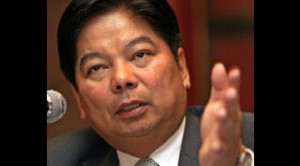Entry of more foreign banks eyed
Regulators are set to ask Congress for new legislation that would open up the local banking sector to the entry of foreign players ahead of the planned integration of financial markets of Southeast Asian nations.
Governor Amando M. Tetangco Jr. of the Bangko Sentral ng Pilipinas (BSP) said monetary authorities were preparing a proposal to both houses of Congress for the liberalization of the restricted banking industry.
“The overall thrust is to liberalize regulations with respect to the entry of foreign banks,” Tetangco told reporters at the sidelines of Euromoney’s Philippine Investment Forum in Parañaque on Tuesday.
“We will be presenting our proposal, which should basically entail the liberalization of foreign bank entry,” he said.
Under the prevailing Republic Act No. 7221, which details the allowed scope of foreign universal and commercial banks’ operations in the Philippines, only 10 foreign lenders are allowed to set up shop in the Philippines.
Other restrictions include the requirements that all foreign banks operating in the Philippines need to be among the world’s top 150 banks, or among the top five banks in their respective home countries.
The growth of foreign banks in the country is also constrained, with the BSP’s Monetary Board required to ensure that local players control at least 70 percent of the banking system’s resources at any given time.
The number of branches foreign banks are allowed to have in the country are also limited to six.
Tetangco declined to disclose proposed changes to RA 7221, which was passed 10 years ago this May. He said the BSP was still finalizing its proposal, which would be presented to lawmakers within the year.
The possible liberalization of foreign banking rules in the Philippines comes ahead of the planned integration of Southeast Asia’s financial system, which would increase competition among the region’s banks. This is part of the Association of Southeast Asian Nations’ (Asean) aspiration to create a single economic community similar to the European Union.
In the first half of last year, Congress passed RA 10574, which allowed foreign companies to acquire stakes of up to 60 percent in rural banks. The so-called Foreign Equity Law, which was supported by the BSP, is expected to facilitate the entry of fresh funds and new technologies that would strengthen the rural banking sector, which serves mainly the countryside.


